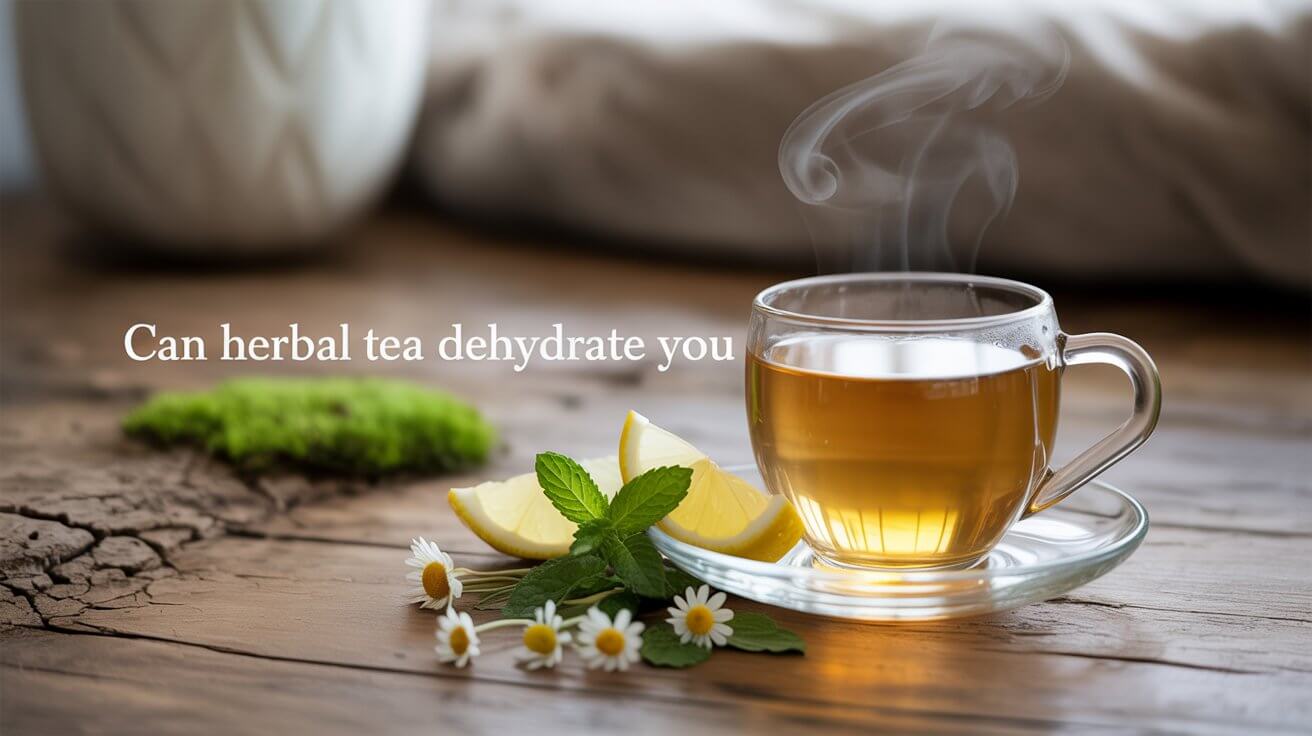Herbal tea is loved around the world for its calming flavors and natural wellness benefits, but a common question continues to stir confusion can herbal tea dehydrate you?
Some people assume it might, especially since traditional teas and coffee can have a mild diuretic effect. However, the truth is much more balanced. While certain herbal ingredients may slightly increase urination, most herbal teas are hydrating, making them one of the healthiest ways to stay refreshed daily.
In this updated 2025 guide, let’s separate myths from facts and uncover how herbal tea truly affects your hydration levels plus how you can enjoy it safely as part of your wellness routine.
Does Herbal Tea Really Cause Dehydration?
The myth that tea dehydrates you comes from the caffeine content in drinks like black tea, green tea, and coffee. Caffeine acts as a mild diuretic, meaning it can increase urination slightly. But according to modern studies, this effect is too minimal to outweigh the fluid intake from your cup.
Here’s what most people miss:
Herbal teas are naturally caffeine-free, unlike black or green teas.
That means popular infusions like chamomile, rooibos, peppermint, or ginger tea actually support hydration not the opposite. Each cup delivers both water and beneficial plant compounds, helping you stay hydrated while soothing digestion and stress.
So unless your herbal blend contains caffeine or strong diuretics, you’re adding to your hydration, not reducing it.
How Herbal Tea Supports Hydration
When it comes to fluid balance, herbal teas work much like water with added wellness perks. Since they’re made by infusing herbs, roots, or flowers in hot water, their base is almost 99% water, making them an easy and flavorful way to meet your daily hydration goals.
Top Hydrating Herbal Teas:
-
Chamomile: Promotes relaxation and mild hydration before bedtime.
-
Peppermint: Soothes digestion and refreshes energy naturally.
-
Rooibos: A South African herb rich in antioxidants and caffeine-free.
-
Ginger: Supports circulation, digestion, and hydration balance.
Pro Tip: Alternating between plain water and mild herbal teas can help you stay hydrated all day without flavor fatigue.
Exceptions: Herbal Teas with Mild Diuretic Effects
While most herbal teas hydrate the body, some blends contain ingredients that act as gentle diuretics, encouraging the body to release excess water. These are not harmful in moderation but may cause slight dehydration if consumed excessively.
Here are the most common examples:
| Herbal Tea | Diuretic Level | Notes |
|---|---|---|
| Dandelion Tea | Mild to Moderate | Supports kidney and liver health but increases urination. |
| Nettle Tea | Mild | Rich in minerals but may encourage fluid release. |
| Hibiscus Tea | Mild | Great for heart health; too much can lower blood pressure and fluids slightly. |
As long as you limit these teas to 1–2 cups per day, you’ll stay perfectly hydrated. Just make sure to balance them with water or caffeine-free herbal blends.
How to Drink Herbal Tea Safely & Stay Hydrated
Here are a few science-backed hydration habits for herbal tea lovers:
-
Drink 2–4 cups per day — that’s the sweet spot for most herbal teas.
-
Rotate your blends — switch between calming, digestive, and detox teas for balance.
-
Add plain water — complement every 2 cups of tea with a glass of water.
-
Avoid overusing diuretic herbs like dandelion or hibiscus daily.
-
Choose high-quality, natural blends free from synthetic additives or strong laxatives.
Editor’s Pick: If you want to stay hydrated and support your metabolism, try All Day Slimming Tea a natural blend crafted to aid digestion, reduce bloating, and promote gentle detoxification without dehydration.
The Connection Between Hydration and Weight Management
Proper hydration is essential for weight control it helps regulate metabolism, curb false hunger, and improve energy. Herbal teas enhance this process by combining water content with functional herbs that support fat metabolism, digestion, and hormonal balance.
For example, All Day Slimming Tea contains:
-
Green tea & oolong: Boost calorie burning and energy.
-
Ginger & dandelion root: Reduce bloating and aid detox.
-
Chamomile: Promotes relaxation for better sleep recovery.
Unlike harsh detox teas, it’s hydration-friendly and safe for daily use, supporting both weight management and wellness.
Final Verdict: Can Herbal Tea Dehydrate You?
No herbal tea does not dehydrate you. In fact, it’s one of the easiest ways to stay hydrated while supporting your body naturally.
Only certain herbal teas with mild diuretic herbs may increase urination slightly, but they don’t lead to dehydration when enjoyed moderately.
If you’re looking for a hydrating herbal blend that also supports metabolism and overall wellness, All Day Slimming Tea is a smart choice. It helps you stay refreshed, light, and balanced the perfect hydration companion for modern wellness.


Leave a Reply